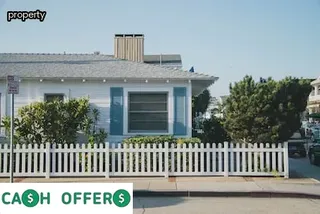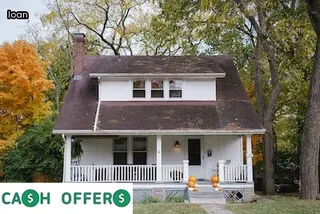In Virginia, a court-ordered sale of property is often part of the judicial tax sale process. Understanding the Code of Virginia, which outlines the regulations for this type of sale, is essential for anyone considering or involved in such a transaction.
The process begins with an assessment of taxes owed on the property and can include notification to the owner, assignment of a sheriff's deed, advertising and bidding at a public auction. It's important to understand that all parties must adhere to the code when it comes to setting minimum bids and ensuring that all buyers receive adequate notice prior to the sale.
Additionally, any interested buyers should conduct thorough research on potential properties before participating in any auction as they may be subject to specific restrictions or conditions imposed by state law or local ordinances. Being aware of these details can help ensure that any purchase made through this process is done so with full knowledge and understanding.

In order to put property up for judicial tax sale in Virginia, several qualifications must be met. First, the seller must be listed as the owner of record of the property and have a vested interest in it.
The seller must also provide proof of ownership, such as a deed or other title document. Additionally, the seller must have all necessary clearances from their local government for any outstanding taxes or liens on the property.
Lastly, they must also receive approval from a judge to place the property up for sale, as well as post public notice of the sale at least twice prior to the date of sale. All these qualifications are necessary in order to successfully put a property up for judicial tax sale in Virginia.
When it comes to understanding the court-ordered sale of property in Virginia, it is important to be aware of the differences between judicial and non-judicial foreclosure procedures. Judicial foreclosures are carried out by a court order, while non-judicial foreclosures require no such order.
In Virginia, judicial foreclosures involve filing a complaint against the borrower in the circuit court, providing notice of the complaint to both the borrower and any other parties involved, scheduling a hearing date for the foreclosure sale and then advertising the sale with a notice in a newspaper or other public forum. Non-judicial foreclosures do not require any court action; instead, they are generally handled by an attorney who will post appropriate notices at least 7 days prior to the sale.
Additionally, non-judicial foreclosures are subject to certain restrictions as outlined in Virginia’s Deeds of Trust Act. It is important to know these procedures when considering buying or selling property through a court-ordered sale in Virginia.

When looking to acquire property through a court-ordered sale in Virginia, it is important to understand the process of obtaining a listing of properties up for auction. Before beginning the search for available properties, buyers should familiarize themselves with the types of auctions that are commonly offered in the state, such as sheriff's sales and foreclosure auctions.
Buyers may also check with local county or city offices to determine if any court-ordered sales are scheduled in their area. Additionally, buyers can contact a real estate agent who specializes in court-ordered sales and request information on upcoming auctions.
It is also possible to find listings online at sites such as Auction.com or RealtyTrac.
com, and auction dates and times may be posted online by local governments or other organizations hosting the auction. Before bidding on any property, buyers should thoroughly research all relevant information about the property including title status, condition of the structure and any outstanding liens or legal issues attached to it.
Obtaining a complete understanding of all aspects related to purchasing a property through a court-ordered sale is essential for ensuring a successful transaction.
The court-ordered sale of property in Virginia is a complex process, and it’s important to understand the types of properties offered at auction. Understanding the different types of properties that may be offered is essential for any potential buyers.
The Virginia court system offers a variety of real estate, including residential and commercial properties, vacant land, and foreclosures or distressed properties. These kinds of auctions also feature personal property such as vehicles, boats, furniture and other items.
Buyers should be aware that certain procedures must be followed in order to purchase a property through court order. Additionally, some auctions have restrictions on who can participate in the bidding process.
It's important to research thoroughly before taking part in any kind of auction.

If you are looking to find out more information about a property being offered at auction in Virginia, there are several places you can turn. The first step is to contact the court that ordered the sale of the property.
The court will be able to provide important details such as the current owner's name and contact information as well as any additional paperwork associated with the sale. Additionally, if there is a designated trustee for the sale, their contact information and details about their role can be obtained from the court.
If needed, an attorney can also be consulted for further legal advice regarding specific properties or auctions. Lastly, you can search online for public records related to the property in question; this may include deeds, mortgages, liens etc.
, which could help further understand its history and current status.
Qualifying to bid on a court-ordered sale of property in Virginia is relatively straightforward. The bidder must be a legal resident or business entity located in Virginia, and must have proof of funds available to complete the purchase.
The bidder must also be legally qualified to pay the full purchase price at the time of sale, with no financing or payment plan available. Additionally, if the bidder is not already registered with the court, they will need to register prior to bidding.
The registration process requires a valid ID and proof that all taxes due on the property have been paid up-to-date. Lastly, all bidders should review all documents related to the sale thoroughly before submitting their bid and ensure that they fully understand any terms or conditions associated with it.

Tax auctions are a necessary part of the court-ordered sale of property in Virginia. Knowing where and when these auctions are advertised is key to understanding the process.
Typically, tax auctions are posted on the local government’s website or a government-run web portal, such as http://www.virginiaauctions.
org/. It is important to check this website regularly for updates and new postings.
Additionally, local newspapers often advertise upcoming tax auctions in their classified ads or real estate section. Lastly, potential buyers should contact their local county treasurer’s office for more information about upcoming tax auctions in their area.
It is important to note that auction dates and times may change with little notice, so it is important to stay up-to-date with the latest news and postings from the local government and newspapers about upcoming tax sales in Virginia.
When and where are auctions held for properties that are court-ordered to be sold in Virginia? Auctions can take place in the courthouse, at the property itself, or at a location specified by the sheriff.
They will typically occur on a specific day and time and must be advertised in a local newspaper at least 21 days before the auction takes place.
It is important to note that these auctions may be held outside of normal business hours, so bidders should pay close attention to any published information regarding the auction's schedule.
Bidders should ensure they arrive early as it is common for auctions to start promptly on time, and late arrivals may not be allowed to participate.

Auctions are held when a court orders the sale of property in Virginia. Typically, an auction is held within 60 days of the court's order or decree.
The exact date of the auction depends on the type of property involved and the terms of the court order. Auctions are usually conducted at designated public places or they may be done online.
Buyers should get all necessary information prior to bidding and make sure they understand any particular rules that may be in effect for that particular auction. In some cases, buyers must pre-register ahead of time with a deposit and/or provide proof of funds before attending an auction.
Buyers should also be aware that in certain circumstances, if no one is willing to pay a minimum bid price set by the court, then the property will remain in possession of its current owner or be repossessed by another agency.
When it comes to court-ordered sales of property in Virginia, the starting bid price for properties at auction is often set by the court. This initial bid price must be met or exceeded in order for the sale to move forward.
These bids are typically determined by the estimated value of the property, with consideration given to any outstanding liens or mortgages against the property, plus other factors such as location and condition. The court may also issue an appraised value on the property prior to auction.
In most cases, this appraisal serves as a guideline for setting the opening bid amount. Bids can also be adjusted before or during auction depending on market conditions and other factors.
It's important to remember that bidders must have sufficient funds available at the time of bidding in order to purchase a property if their bid is accepted.

The bidding process for court-ordered property sales in Virginia is simple and straightforward. First, potential buyers must register for the sale, which begins with an announcement of the available property.
After registration, bidders will submit their bids, either in person or via fax or email. Once all bids have been received, the auctioneer will open the bidding and begin to take offers from participants.
Bidders can make offers on individual items or on a package of multiple items if applicable. The highest bidder at the end of the auction will be declared the successful purchaser and must pay for their purchases immediately upon conclusion of the sale.
The successful bidder will then be responsible for transferring title to the property according to Virginia law. It's important to note that all bids are legally binding and failure to pay could result in legal action against the bidder.
When purchasing a property through a court-ordered sale in Virginia, it is important to understand the payment requirements that must be met on the day of the auction. Generally, buyers must pay the full purchase price on the day of the auction in cash or cash equivalent such as certified funds or money orders.
Personal checks are not accepted and bidders should always have sufficient funds available to cover their total bid amount. It is also important to note that all sales are final at the time of purchase and buyers must be prepared to make payment immediately after winning their bid.
Additionally, depending on local regulations, buyers may be required to provide proof of identity prior to or at the time of sale. Buyers should always contact their local government office for specific information regarding payment methods and requirements before participating in a court-ordered sale in Virginia.

In Virginia, the court-ordered sale of property can be a long, drawn-out process. The length of time it takes for a judicial tax sale to complete depends on the complexity of the case and can range from several months to several years.
Typically, the timeline begins with a notice to property owners that they are in default, followed by an advertisement period which allows potential buyers to research properties and make offers. After this, there will be a public auction where bids are made and accepted.
Once a successful bidder is selected, closing documents are drafted and signed before ownership is officially transferred. During the entire process, it is important that all parties involved adhere to strict guidelines established by Virginia law.
Additionally, there may be additional timelines associated with redemption periods or appeals that could further extend the judicial tax sale process.
Understanding the court-ordered sale of property in Virginia is not always easy, but understanding the results of an auction can be even more challenging. A comprehensive guide to understanding the auction process will provide insight into who purchased what, and for how much.
Understanding this process requires knowledge of the types of auctions that take place and how they are conducted. The most common type of auction used in Virginia is a public foreclosure auction, where bidders openly compete to purchase the property at a set price determined by the court.
During these auctions, potential buyers must be aware of any liens or taxes associated with the property as this could affect their final bid amount. There may also be restrictions on who is allowed to participate in certain types of auctions, such as those involving delinquent taxes or special circumstances like bankruptcy proceedings.
Knowing which type of auction applies to your situation is essential when determining who purchased what and for how much. Additionally, it’s important to understand that some properties may not be sold during an auction due to insufficient bids or other factors.
In these cases, the court may choose to allow additional time for bidding or may transfer ownership back to its original owner if no viable offers were received during the sale. Understanding all these details will help you better comprehend who bought what and for how much when it comes to court-ordered sales in Virginia.

The successful bidder of a property auction in Virginia is granted certain rights. These include the right to be given possession of the property within 30 days of the sale, the right to receive an assignment of all contracts, leases, and agreements related to the property, and the right to acquire title insurance insuring against losses resulting from defects in title.
Furthermore, buyers may obtain a deed conveying ownership of the real estate upon payment of the purchase price - unless they choose to accept an assignment of existing leases or mortgages. In this case, buyers will receive a deed only after they have satisfied all contractual obligations associated with such leases or mortgages.
Additionally, buyers are provided access to any documents that were filed with their county clerk's office prior to their purchase. Finally, they can also demand proof that all taxes on the property have been paid up-to-date.
Keeping property from being sold at auction in Virginia is possible, but it requires a thorough understanding of the court-ordered sale of property process. In order to successfully prevent a property from being sold at auction, it’s important to be familiar with the Virginia statute and the legal steps required for such a transaction.
Knowing when and how to file an objection or motion to stay can make all the difference when it comes to protecting a person’s right to their property. It's also necessary to understand the timeline of the court-ordered sale process, including when notices are sent out, how long they must be posted, and how much time is allotted before an auction would take place.
Additionally, any special circumstances that might affect one's ability to keep their property from being sold should be taken into consideration prior to filing any motions or objections. Lastly, knowing which assets are exempt from sale can help ensure that one’s rights remain intact during this trying process.

In order to understand the court-ordered sale of property in Virginia, one must also be aware of the documents required during the judicial tax sale process and potential penalties imposed on debtors who do not pay taxes owed. These documents may include a Notice of Tax Sale, a Certificate of Delinquency, and an Order Confirming Sale.
If a debtor does not pay taxes due, they may face certain penalties such as a lien on their property or assets, wage garnishment, suspension of their driver's license or professional licenses (in some cases), and/or attachment to their bank accounts. Furthermore, the debtor may be subject to civil and criminal charges for nonpayment.
It is important for those involved in the court-ordered sale of property in Virginia to fully understand all requirements and potential consequences associated with unpaid taxes.
A judicial sale of property in Virginia is a court-ordered sale of real estate or personalty to satisfy a creditor's debt. This type of sale is typically ordered by a court when the debtor, who has defaulted on their debts, does not have enough assets to cover the amount owed.
The judicial sale process involves an auction where creditors bid on the property, with the highest bidder receiving title to the property. A judicial sale is often quicker and less expensive than other foreclosure processes, as it does not require any legal notices or court hearings prior to the sale.
When a judicial sale is complete, any remaining proceeds are returned to the debtor. Understanding this process can help creditors and debtors alike make informed decisions regarding their assets and liabilities.

The redemption period in Virginia allows a person to reclaim their property after it has been sold at a court-ordered sale. This period, which is called 'right of redemption', is set by the state and typically lasts for 12 months from the date of sale.
During this time, the original owner can redeem their property by paying off all outstanding debts plus interest and any additional costs associated with the sale. The right of redemption also applies in cases where the property has been sold due to unpaid taxes or liens.
Individuals should make sure they understand all the rules and regulations related to redemption before making any decisions about their property.
When a person's property is seized by a court in Virginia, the individual may make a motion to have the property returned to them. This motion is known as a Motion to Return Seized Property.
The motion must be filed with the relevant court and include legal arguments about why the court should return the seized property. The individual must also provide evidence that supports their claim that they are entitled to have their property returned.
In most cases, this includes proof that they lawfully own the seized item or items of property. Additionally, if the seizure was related to an unpaid debt or other financial obligation, the individual must provide proof that they have made arrangements to pay off the debt or otherwise fulfill their obligations.
If approved by the court, any seized item will be immediately returned to its rightful owner.
The partition law in Virginia is a legal process that involves the sale of property when multiple parties have an ownership interest. This law aims to ensure fair division of real estate among co-owners, often spouses or family members, who cannot agree on how to divide the property without court involvement.
By initiating a partition lawsuit, a co-owner can ask the court to order the sale of the property and divide the proceeds equitably between all owners. The court may also appoint a surveyor to identify and appraise each owner’s share of the property.
It is important for individuals in Virginia to understand the partition law and how it applies in their case before any decisions are made about selling their real estate.
A: If land held in trust is auctioned off by a court in Virginia, it will be sold to the highest bidder and the proceeds of the sale must be used according to the terms of the trust. The property may also be leased instead of being sold, depending on the specific provisions of the trust.
A: In Virginia, a court-ordered sale of mortgaged property typically involves the preparation and filing of a deed of trust or trust deed, which replaces the existing mortgage or bond. The deed of trust serves as proof that the court has authorized the sale and sets out the terms for payment to the lender. The proceeds from the sale are then used to pay off any outstanding debt related to the mortgage.
A: The court must issue an order of conveyance, which authorizes the sale of the real property and directs how the proceeds from the sale should be disbursed.
A: The value of the property during a court-ordered sale in Virginia is typically determined by the fair market value, which includes any unpaid real estate taxes or other liens.